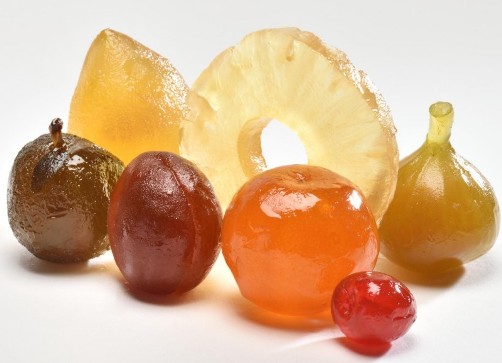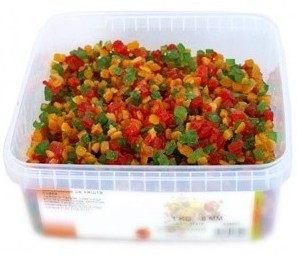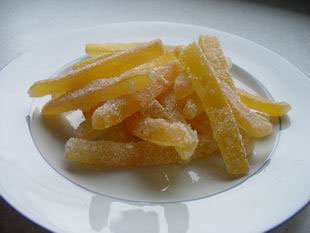[ad_1]
The blog of cooking-ez.com

Do you like candied fruit? You might like to nibble a handful or add it to a recipe, like a classic fruit cake or delicious Italian specialities like panettone or sicilian epiphany pie.
So, if you enjoy them and you want to make a recipe that asks for them, you will probably go to buy them in a supermarket. If you do, you may well find a temptingly priced tub or packet of gaudily coloured little cubes labelled “candied fruit” or “rainbow mix” that looks like this:

But there’s a (big) problem here: these sweet little dice are anything but genuine candied fruit. At best they might be melon; at worst, turnip or swede that has had its flavour chemically neutralised before being dyed and sweetened. The real scandal is that they can be sold as “candied fruit”. If you read the label – in very small print, of course – you will see that the first ingredient in the list is “Turnip”…
Industrial cakes and desserts “with candied fruit” contain tons of this stuff, and they usually taste pretty dreadful. The only flavour in these coloured bits is their sweetness.
True candied fruits, worthy of the name, can be any of a whole variety of real fruit left to soak up sugar in a lengthy process: oranges, lemons, angelica, other citrus fruit, cherries, strawberries, etc. Recipes shouldn’t just say “add the dried fruit”, but should specify (for example) “add the candied orange peel, cut into small dice”. This is more expensive, obviously, but quality and flavour come at a price.
Let’s not forget that in France, like in Italy and Greece, candied fruits are a real tradition and the skilled craft of preparing them is still alive and well, notably in Provence.

So, can you make your own candied fruit at home? Replying in the great tradition of French diplomacy, I would say, “well, yes and no”. No, because it is a lengthy and complicated process which demands real artisan’s skills. But, on the other hand, it is fairly easy to prepare the delightful little treats known as “orangettes”, made from strips of orange peel (or you can use grapefruit). It takes rather a long time, but the results are well worth it. You can see how to do it here.

To sum up: if you want to use candied fruit in a recipe, leave the awful industrial diced turnip on the shelf. Dig a little deeper into your pocket and opt for high-quality artisanal candied fruit, which you can always dice yourself.
Last modified on: June 21th 2017
[ad_2]
Source link





